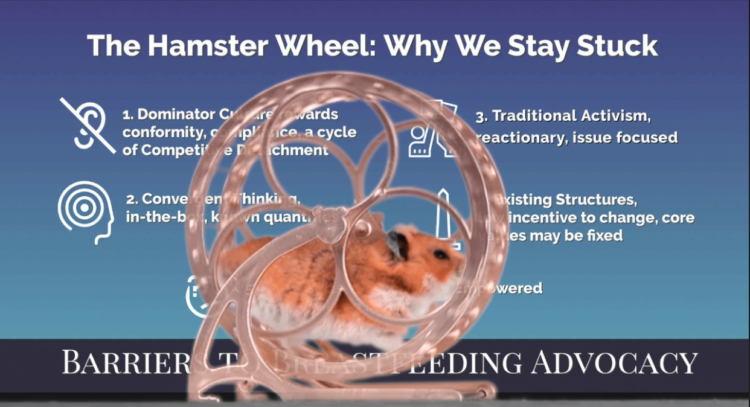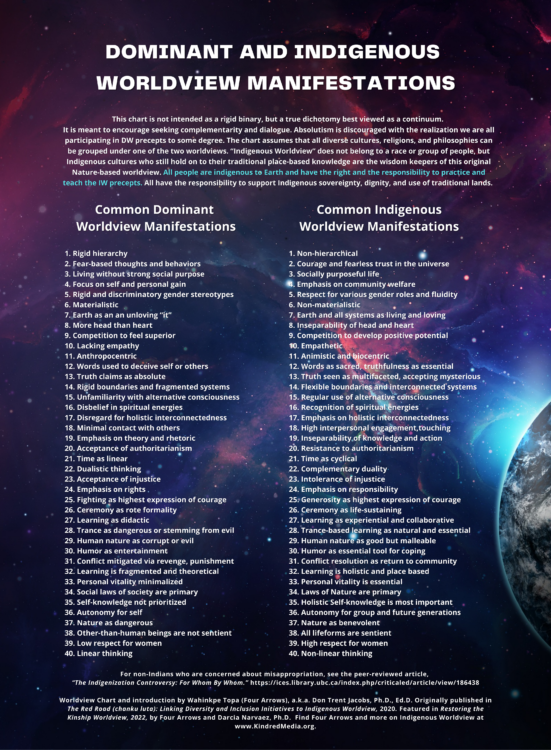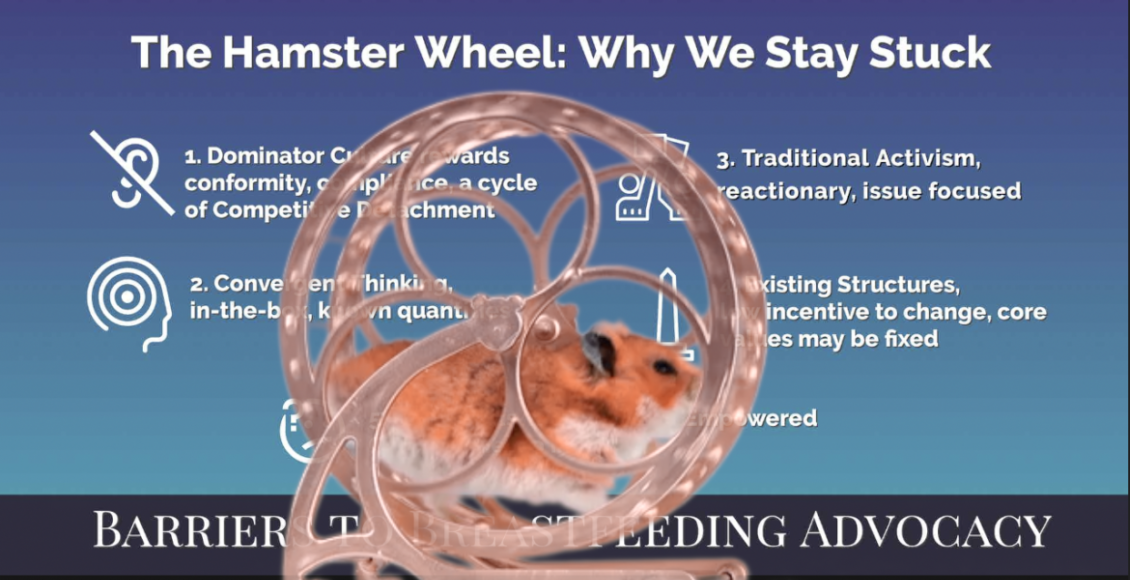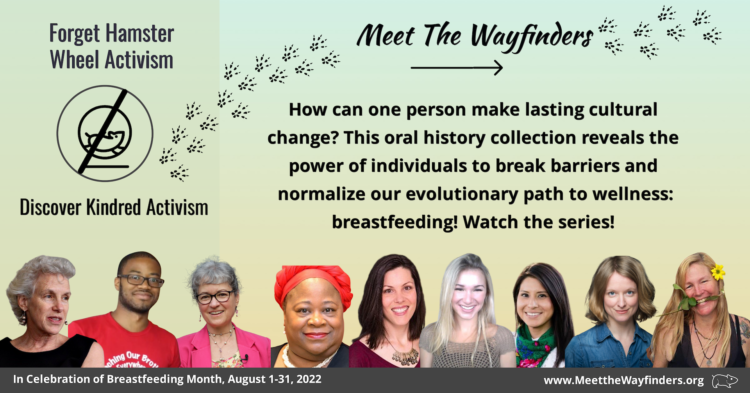
“Action has meaning only in relationship, and without understanding relationship,
action on any level will only breed conflict. The understanding of relationship
is infinitely more important than the search for any plan of action.” ―
Lisa Reagan , Kindred’s editor and Kindred World’s co-founder, coined the term Hamster Wheel Activism as a way to explain the consequences of taking action to “make change” without first become worldview literate, and then moving toward the wholeness possible through a Kinship Worldview. Acting from our cultural programming can lead us to burnout and despair, while taking action after moving into a relational, connected worldview, allows us to be sustainable and regenerative in our intentions for cultural change. Our culture’s Cycle of Competitive Detachment programming would have us running a hundred miles and hour and getting nowhere. In her Meet the Wayfinders Oral History Series, Lisa explores Kindred Activism, which looks toward our Evolved Nest and its correct baselines for wellness to inform us on how which actions are needed for cultural transformation and healing humanity, and how to take actions from a Kinship Worldview, a sustainable, self-nurturing way.
, Kindred’s editor and Kindred World’s co-founder, coined the term Hamster Wheel Activism as a way to explain the consequences of taking action to “make change” without first become worldview literate, and then moving toward the wholeness possible through a Kinship Worldview. Acting from our cultural programming can lead us to burnout and despair, while taking action after moving into a relational, connected worldview, allows us to be sustainable and regenerative in our intentions for cultural change. Our culture’s Cycle of Competitive Detachment programming would have us running a hundred miles and hour and getting nowhere. In her Meet the Wayfinders Oral History Series, Lisa explores Kindred Activism, which looks toward our Evolved Nest and its correct baselines for wellness to inform us on how which actions are needed for cultural transformation and healing humanity, and how to take actions from a Kinship Worldview, a sustainable, self-nurturing way.
In the Meet the Wayfinder Series, you can listen to nine activist describe how they broke barriers to breastfeeding in their communities and nationally by listening to themselves first and meeting the need their activism addressed through relational wisdom.
In the Meet the Wayfinder Series you can discover:
Let’s take a look at a few reasons cultural change can be difficult, and why it is easy to stay in a hamster wheel as advocates. We’ll then see how the wayfinders do things differently.
What keeps us in a hamster wheel of advocacy, feeling like we’re running, moving and shaking, but then not getting anywhere?
First, our modern Dominator Culture’s prominent feature, as Darcia Narvaez shows us, is a Cycle of Competitive Detachment. Our current culture does not value listening, relational skills, or inner awareness which are necessary to support and appreciate diversity, inclusion, sustainable living, or a whole child wellness model.
Second, our current culture values Convergent Thinking, only working with known quantities that keep us moving inside of known power structures continuing unsustainable ways of living and patterns of systemic oppression.
Third, our responses to these external forces through traditional activism are reactionary, meaning, we wait until a problem IS overwhelming our senses, time, and energies to acknowledge it, and then we protest, march, and express our outrage in social media campaigns. This sort of traditional activism has its place, but it is now how real change is made, according to our wayfinders’ stories.
Fourth, Existing institutional structures are usually too compromised, conflicted, and insular to fully embody new values and visions. Parallel structures are needed for this purpose.
And fifth, because our current culture expects for conformity, in-the-box thinking, and traditional reactionary after the fact activism, there is nothing new to integrate into the old way of being, thinking, and existing culturally.
This way of being, of waiting for the external forces to change and support individual and collective wellness, is no longer necessary. How did our wayfinders create change?
Visit the Meet the Wayfinders website: https://meetthewayfinders.org/overview-presentation-1
Read more about Lisa Reagan’s work: https://kindredmedia.org/about/lisa-reagan-kindreds-editor/
« Back to Glossary Index



Comments are closed.